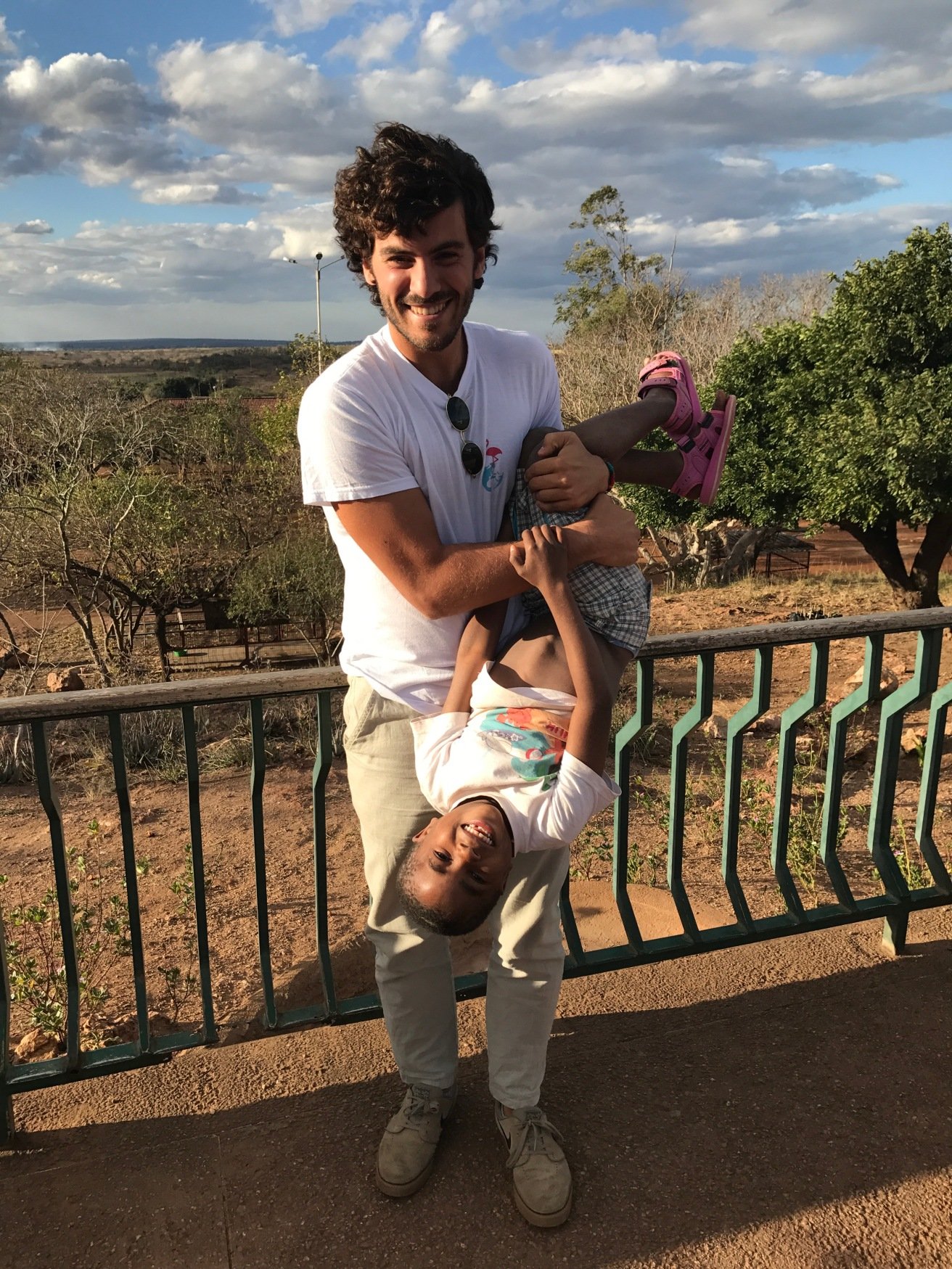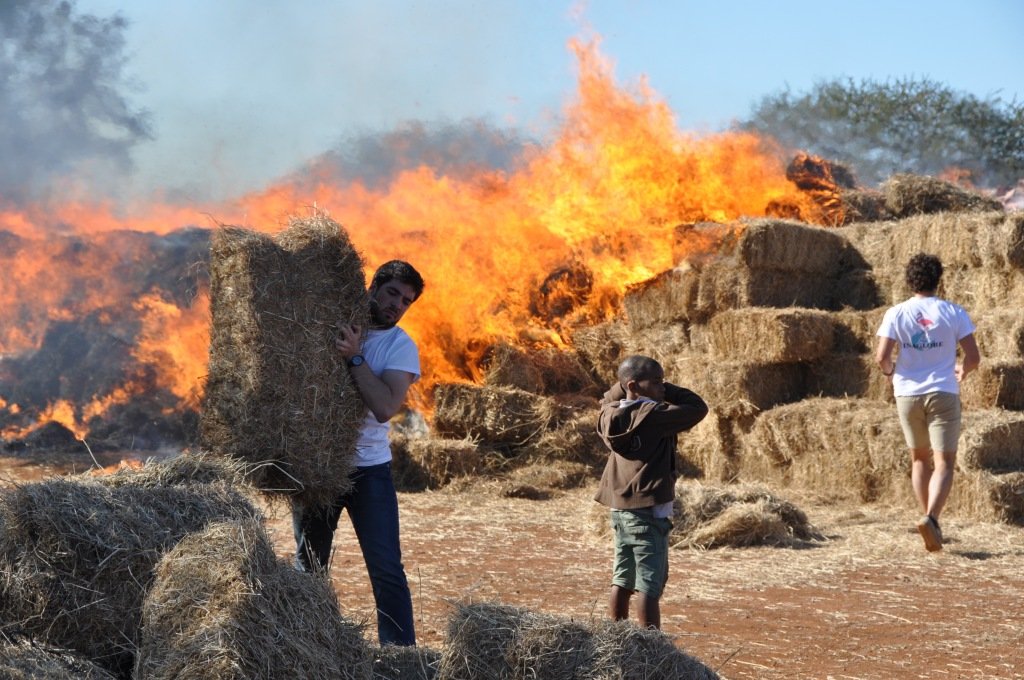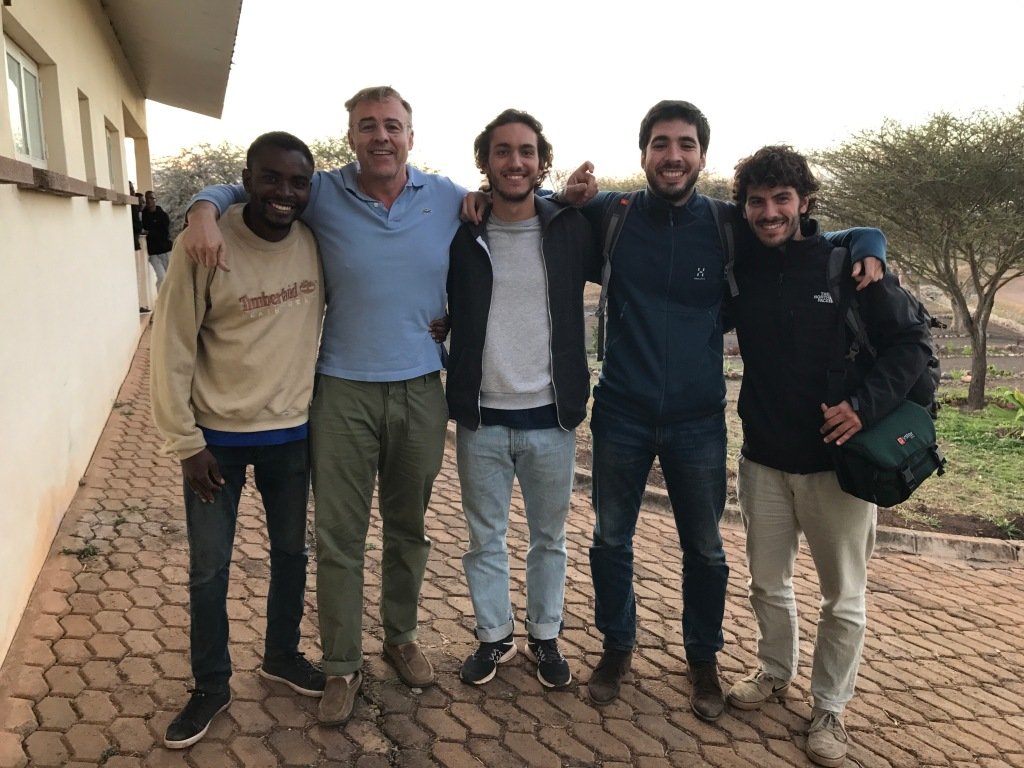Associação Casa Velha
The sun rose in Casa do Gaiato at the chime of the “rise and shine” bells, ringing again shortly afterwards to call for breakfast. We had slept in separate buildings, Xavi and Alberto stayed together in Casa Mae (0-6 year-olds), and Jaime stayed in Casa 2 (9-11 year-olds). We had a great breakfast, after which we shared some time with some of the kids from Casa Mae, whom came to say hello. One mentioned that he was also called “Jaime”, and there was an immediate bonding moment, Jaime took Jaime to play with his friends, when they were all getting new sandals. One thing that was consistently present throughout meals was the use of mandioca as the staple carbohydrate, with which truly delicious sponge cakes were made!
After playing with the children for a bit, we set out to inspect the solar panel installations that Herman, a 24 year-old Gaiato and recent graduate of physics, had done. Herman was a shy but brilliant guy, with a sense of physics very different to that of Alberto’s that didn’t stop them from bonding. Herman had done the installation of these as part of his final year thesis. On our way to inspect the second set, by the carpentry and the barn, we encountered a huge and out-of-control fire. The haystacks that had been collected on the estate of the Casa do Gaiato had caught fire (unintentionally or intentionally). These are routinely sold to nearby cattle ranchers, and are a way of economically sustaining the orphanage. Upon seeing the fire, a cloud of shock initially paralysed us, hereafter we began moving as many haystacks out of the mound, in order to save some of the stock and to remove fuel to the approaching and spreading fire. We spent a couple hours helping beat the fire down and separating hay from the approaching fire. This was one of the most intense two hours that we had experienced in our life.
Once the fire was put under control by the local workers and improvised firefighters, we headed to inspect the remaining solar panel installations, as well as a light system installation that garners solar light and redirects it in such a way that the room becomes lit (with a similar concept to a window on the ceiling but with an aluminium tube and some PVC plastic), called a solar tube. People such as Herman are the kind that we would hope to work with, identifying technological opportunities to problems found on the field. After the inspection, Jose Manuel drove us around the estate to show us the landscape and the different fields that are used. Mid drive we encountered an unexpected boulder that brought the car to a halt, with not automotive capacity to move. Thus we had to get off the back of this rudimentary pick up truck to push the car past the boulder that was keeping the wheels above the ground.
Once we got back from the drive, we all groomed ourselves, to remove the smell of smoke and burning that had lingered on our hair and our clothes. We then went to eat at the lunch room, which had a large number of visitors (given it was a Saturday), to whom the kids then danced and sung to a series of songs that they had prepared. Once again, we were shown that being born in East Africa gave you supernatural grasp of tempo and rhythm, or so it seemed to three guys educated in London…
After lunch, we had the chance to present to Quiteria our project, to which she responded positively, especially because it would give boys like Herman the opportunity to get involved in new projects that gave him exposure to new cultures and new ways of thinking about innovation and development. It also posed itself as the possibility of making Casa do Gaiato more efficient and organised, something that as of today only Quiteria has full reins of, on top of bringing innovative development to the community. As the meeting concluded we had to figure out the way to return to Maputo. After substantial uncertainty and a couple failed or discarded attempts, two of the visitors thankfully agreed to hitch us a ride to Maputo. These two men were diocese, one the ambassador for the Vatican in Mozambique, and the other a colleague of his in Mozambique as part of his education. These two men were extremely interesting, and posed a whole new standpoint to how we viewed the structure of the Catholic church. As a result, the whole drive (except 10 minutes which they requested silence to do their prayers) was spent conversing and learning about one another.
The evening in Maputo was a whole new world, we met with Margarida, a Portuguese friend that included us in her dinner plans with her friends before heading to a Latino night to dance the night away. After a few beers at the bar, with some surprise, we bumped into one of the country managers of the meetings that we had ran the previous week. Despite being the biggest city in Mozambique, Maputo seems to be a small world once you get to know it. And so the night ended, and we prepared for a short set of hours before we headed to Ponta.





